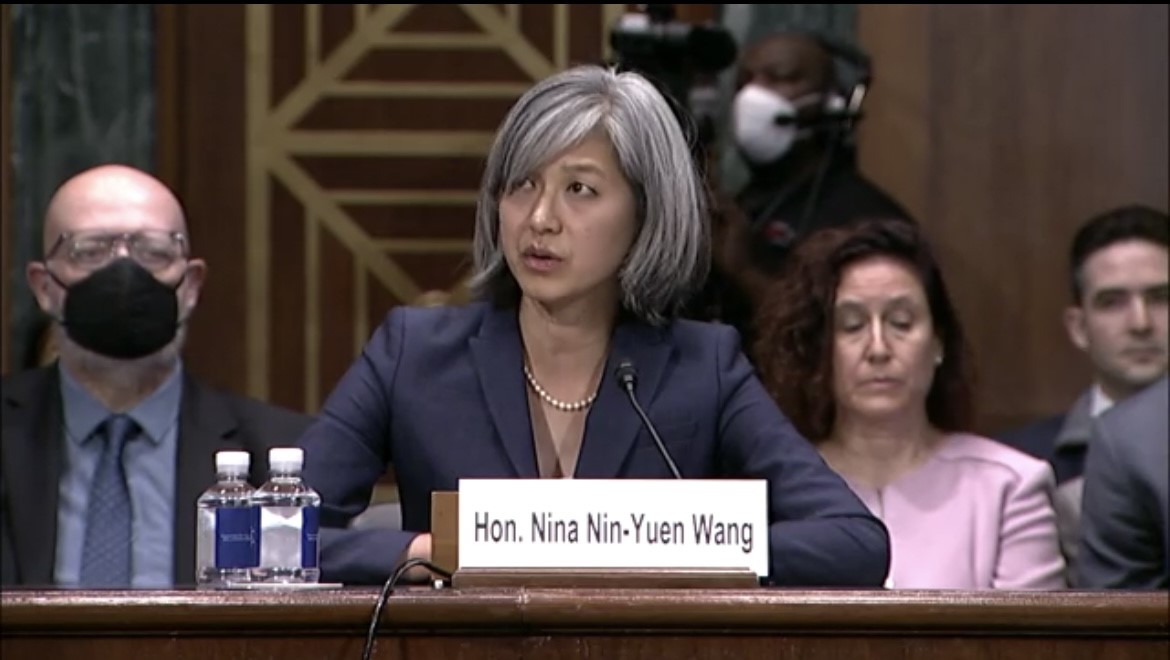American federal trial judges are generally best of the breed lawyers. But even they are limited to where the balls are thrown and what batters swing at in competitive property insurance litigation. This post is a follow-up to yesterday’s, Does Colorado Require Matching? Is Matching a Coverage Issue or a Factual Issue For an Appraisal Panel?
Federal judges must rely upon briefs by lawyers to make rulings. In the case at hand, I cannot tell you how many hundreds of times the two paragraphs below could be copied by every insurance company lawyer in a hail damage case, which was recited by Travelers in one of its briefs in the subject case:1
This matter arises from an insurance coverage dispute over hail damage to Plaintiffs’ house. After the parties’ disputed the amount of loss, Plaintiffs demanded appraisal under the insurance policy at issue. The appraisal panel issued an appraisal award, which included an amount for total roof replacement to achieve a cosmetic match between existing and replacement roof components. Moreover, the appraisal panel did not make a determination of the cause or date of loss, but determined only the value of damage.
Travelers paid the portion of the award attributable to property components over which coverage was undisputed. However, Travelers declined to pay the roof replacement portion of the award, since it was based on a cosmetic matching determination and the appraisal panel made no determination of the cause or date of loss.
This story remains the same as it does in so many other hail damage cases in appraisal because when you read everything, as the judge did, the insurer grossly underestimated the amount owed, tried to unilaterally change the terms of the policy regarding appraisal, and then nit-picked which parts of the award it would pay and not pay. The insurer did not even challenge the award but merely re-adjusted line items in the award it arbitrarily deemed worthy of payment.
When did actual physical unsightly damage to a part of a building change from a loss to insurance company property adjusters saying that “physical alteration and cosmetic appearance change from hail” is not enough to trigger coverage? It was never this way 40 years ago when I started in this business. Now, some companies have endorsements and limitations to coverage with this language. Judges are on the receiving line of making judgments about what these endorsements and new contracts mean.
The federal judge ruled that the insurer failed to timely challenge the appraisal award and that causation can be considered by a Colorado appraisal panel:
In interpreting the term ‘amount of loss,’ after examining the plain meaning of the term, the Tenth Circuit concluded that in the insurance context, the ordinary meaning of the phrase ‘amount of loss’ encompasses causation. BonBeck, 14 F. 4th at 1178–79. In doing so, the Circuit joined other courts that relied on sources of authority establishing that causation is an integral part of loss for the purposes of insurance; and that the plain meaning of the term ‘amount of loss’ as used in the Travelers’s policy necessarily includes causation.
Under its interpretation of the plain language of the Policy, the Tenth Circuit emphasized that after appraisal, the insurer ‘can’t rehash’ the ‘factual finding on how much fail damage occurred’ but ‘can deny the claim for a host of other reasons having nothing to do with the cause of the damage.’… Travelers fails to point to any authority that would permit it to challenge causation once an Appraisal Award is issued without moving to vacate, set aside, or modify the Appraisal Award and complying with the applicable standards for such a motion.
The court ruled that Travelers failed to pay for undisputed damage:
Further, it is undisputed that Travelers has not paid to replace any roof tiles, despite the fact that Mr. McClure (Travelers’s appraiser) agreed that at least some of the tiles on Plaintiffs’ roof were damaged by the May 8, 2017 hailstorm. …Travelers points to no contractual provision or legal authority that excuses it from paying for these tiles that were undisputedly damaged by the hailstorm.
The court confirmed the appraisal award based on the Colorado arbitration code:
Under the CUAA, after an award—here, an appraisal award—is entered, a party may move to either modify or correct the appraisal award, see Colo. Rev. Stat. § 13-22-224, or may move to vacate the appraisal award on a number of bases, including that the appraiser exceeded her authority. A party may also move to confirm the appraisal award. … In the event a motion to confirm the award is filed, ‘the court shall issue a confirming order unless the award is modified or corrected pursuant to section 13-22-220 or 13-22-224 or is vacated pursuant to section 13-22-223.’ Id. (emphasis added). The confirmation of an appraisal award is not discretionary; the statute’s mandatory language means that if the Court does not vacate or modify the appraisal award, it must confirm the award….
Although Travelers contends that it is ‘not bound by the appraisal panel’s coverage determination on the cosmetic matching issue,’ and that the Appraisal Award is ‘not binding,’ it did not move to modify, correct, or vacate the appraisal award and, as discussed above, has disclaimed any intention to do so.
…
This Court similarly finds that the Appraisal Award in this case is binding as to the amount of loss to the Bertisens’ property, including their roof, caused by the May 2017 hailstorm and Travelers cannot avoid Plaintiffs’ breach of contract claim by challenging the causation or the date of loss in this action.
The court apparently ruled that the coverage issue regarding cosmetic damage is reserved for the court:
The appraisal process . . . is intended to produce a binding resolution concerning certain factual issues bearing on coverage. . . . Any incidental legal determination regarding the ultimate coverage question would be outside the scope of the appraisal process and subject to review.”). Indeed, it is well settled that coverage determinations are legal determinations for the Court to decide. And this Court agrees that whether or not a line item—in this case, cosmetic tiles—is covered by the Policy is a coverage issue….
Taking the record as a whole, this Court cannot determine whether Plaintiffs are entitled to summary judgment as to their breach of contract claim for the Appraisal Award beyond the 191 roofing tiles to include the entirety of the roof.
Further, notably, and critically, the Parties do not brief the Policy interpretation issues relating to coverage for cosmetic matching in the context of Plaintiffs’ Motion for Partial Summary Judgment….
To be clear, Travelers directs the Court to no specific Policy provision that it contends operates to exclude cosmetic matching coverage in any of its briefing….
The court ruled that Travelers may be subject to a bad faith judgment:
Travelers argues that ‘there is no basis for an unreasonable denial of Plaintiffs’ claim, as Plaintiffs cannot sustain their burden of proof to establish any additional damage to the concrete tile roofs caused by the May 8, 2017 storm.’ [Doc. 73 at 14]. However, as discussed above, there is no dispute that the May 2017 hailstorm damaged at least some of the tiles on Plaintiffs’ roof, and Travelers admits that it has not paid for any tiles. Accordingly, this argument fails.
… Travelers’s arguments are based at least in part on the same unsupported presumption underlying Travelers’s arguments regarding Plaintiffs’ breach of contract claim—namely, that Travelers was permitted under the Policy to withhold payment of any amount from the Appraisal Award after it was filed. See, e.g., [id. at 2 (asserting, without any citation, that Defendant ‘paid the undisputed portion of the award as required under the insurance policy‘) (emphasis added)]. These arguments also ignore that Travelers’s own appraiser, Mr. McClure, found that at least some of the tiles on Plaintiffs’ roof were damaged by the May 2017 hailstorm, and yet Travelers has not issued payment to repair or replace any of the tiles, among other issues. And, as discussed above, Travelers has not established that the Policy precludes cosmetic matching.
In sum, Travelers’s remaining arguments lack merit.
In a footnote, the court explains why Travelers argument lacks merit:
For instance, in their Motion for Partial Summary Judgment, Plaintiffs state ‘[t]o-date, Travelers has not paid for a single roofing tile,’ citing to the deposition of Travelers’s designated representative for support. Travelers disputes this fact on the grounds that ‘[a]lthough Travelers has not attributed a specific payment to ‘roofing tiles,’ its initial claim payments included amounts attributable to roof damage.’ However, as Plaintiffs correctly point out, although the document referenced by Travelers reflects pricing to fix other portions of the roof (such as the skylight and roof vent), the document states nothing about replacing roofing tiles.
I was exhausted reading the briefs and how those arguments played into the judge’s findings. Judge Wang deserves a shout-out for rulings with explanations that make sense.
The case is still active. Travelers has an excellent trial counsel, and maybe it will turn the case around during trial on the alleged coverage issue. Depending on how those facts are viewed, there may be an update to this case as well.
Thought For The Day
The world judges you by the decisions you make: never knowing the options you had to choose from…
—Nitya Prakash
1 Bertisen v. Travelers Home & Marine Ins. Co., No 20-cv-03650 (D. Colo. Sept. 8, 2023).





